Major Sudhir Kumar Walia was a decorated Officer in the Indian Army who served in the prestigious 9 Para (SF) unit. He was born on May 24, 1969 in the village of Banuri in the Kangra district of Himachal Pradesh to an Army veteran and his wife. He attended the Sainik School at Sujanpur Tihra and went on to gain admission into the National Defence Academy, Khadakwasla.
Sudhir completed his training at the Indian Military Academy and was commissioned as a second lieutenant into the 4th battalion, The Jat Regiment on June 11, 1988.
He was a member of the Indian Peace Keeping Force (IPKF) sent to Sri Lanka on a peace mission and upon his return, he chose to join the 9th battalion, Para (Special Forces) unit. This unit specializes in mountain operations and Sudhir also served two six-month terms at the Siachen Glacier.
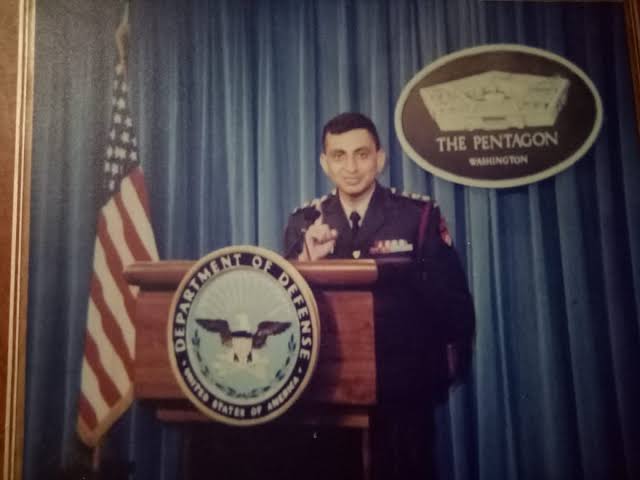
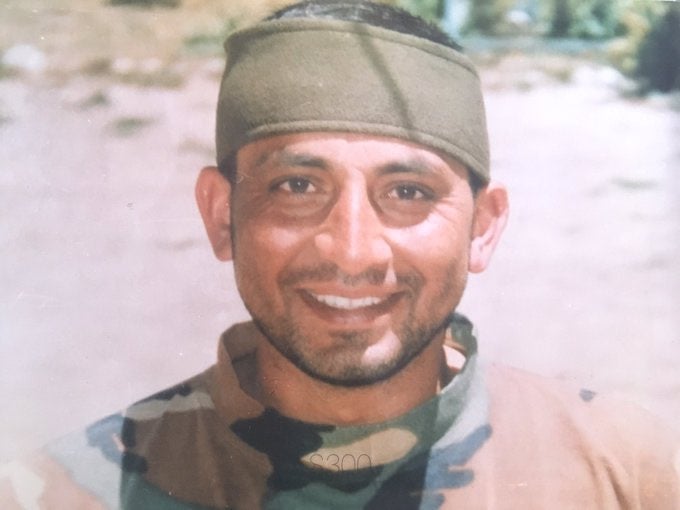
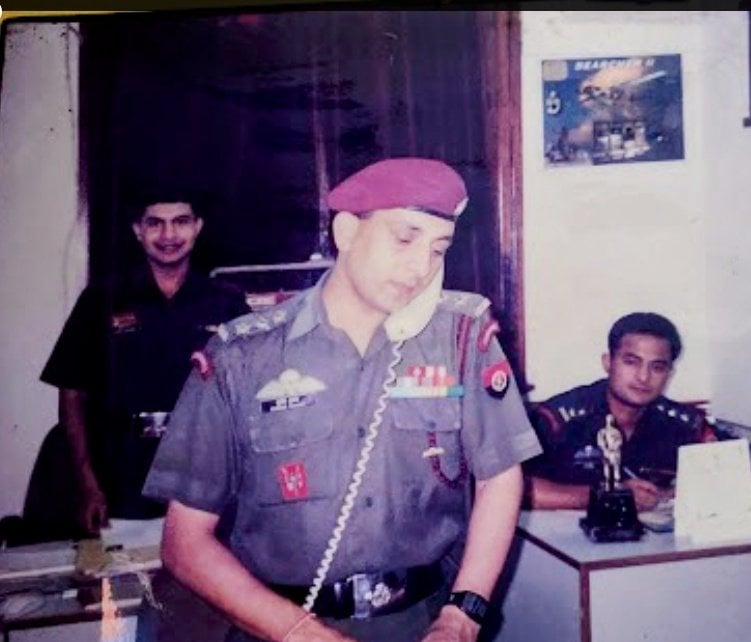
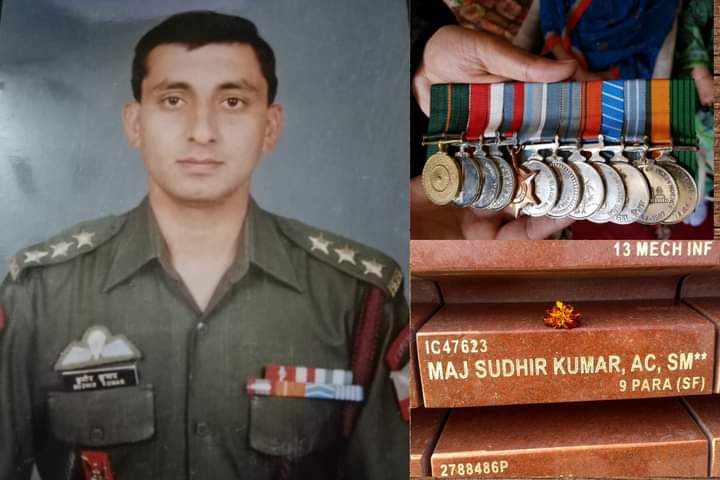
For his bravery and competency in combatting militancy in Jammu and Kashmir, Sudhir was awarded the Sena Medal in 1994 and was later promoted to the rank of captain on June 11, 1993. In 1997, he was sent to the United States for specialized training and performed so well that he was referred to as “Colonel” during the course.
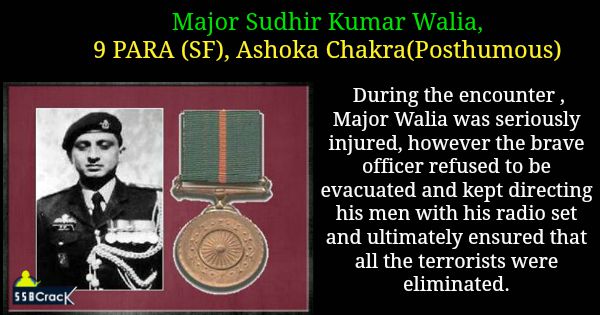
Sudhir was later appointed as an Aide-de-camp (ADC) to the Chief of the Army Staff (COAS), General Ved Prakash Malik. During the Kargil War, he obtained special permission from the COAS to go to the frontlines. Within ten days of his departure from Delhi, he led his team to capture Zulu Top at an altitude of 5200 metres in the Mushkoh Valley sector. When asked about his attack on Zulu Top without acclimatization, he famously replied, “Sir, you know that I’m a pahari (from the mountains). I don’t need acclimatization.”
After the Kargil War, Sudhir’s team was assigned the duty of fighting terrorism in Jammu and Kashmir. On August 29, 1999, he led an assault on a militant hideout in the Haphruda jungles of Kupwara district in Jammu and Kashmir. Despite sustaining gunshot wounds, he continued to give orders to his team until they succeeded in their mission. He allowed himself to be evacuated only 35 minutes after the operation ended, but succumbed to his injuries en route to the army base hospital.
For his bravery and selflessness in the face of danger, Major Sudhir Kumar Walia was posthumously awarded the Ashoka Chakra, India’s highest peacetime military decoration, by then President K. R. Narayan in January 2000. He remains an inspiration to the Indian military and a symbol of courage for the nation.
Major Sudhir Kumar Walia was a true hero who dedicated his life to serving his country and defending the safety and security of its citizens. His unwavering commitment to duty, bravery, and sacrifice will always be remembered and honored.







